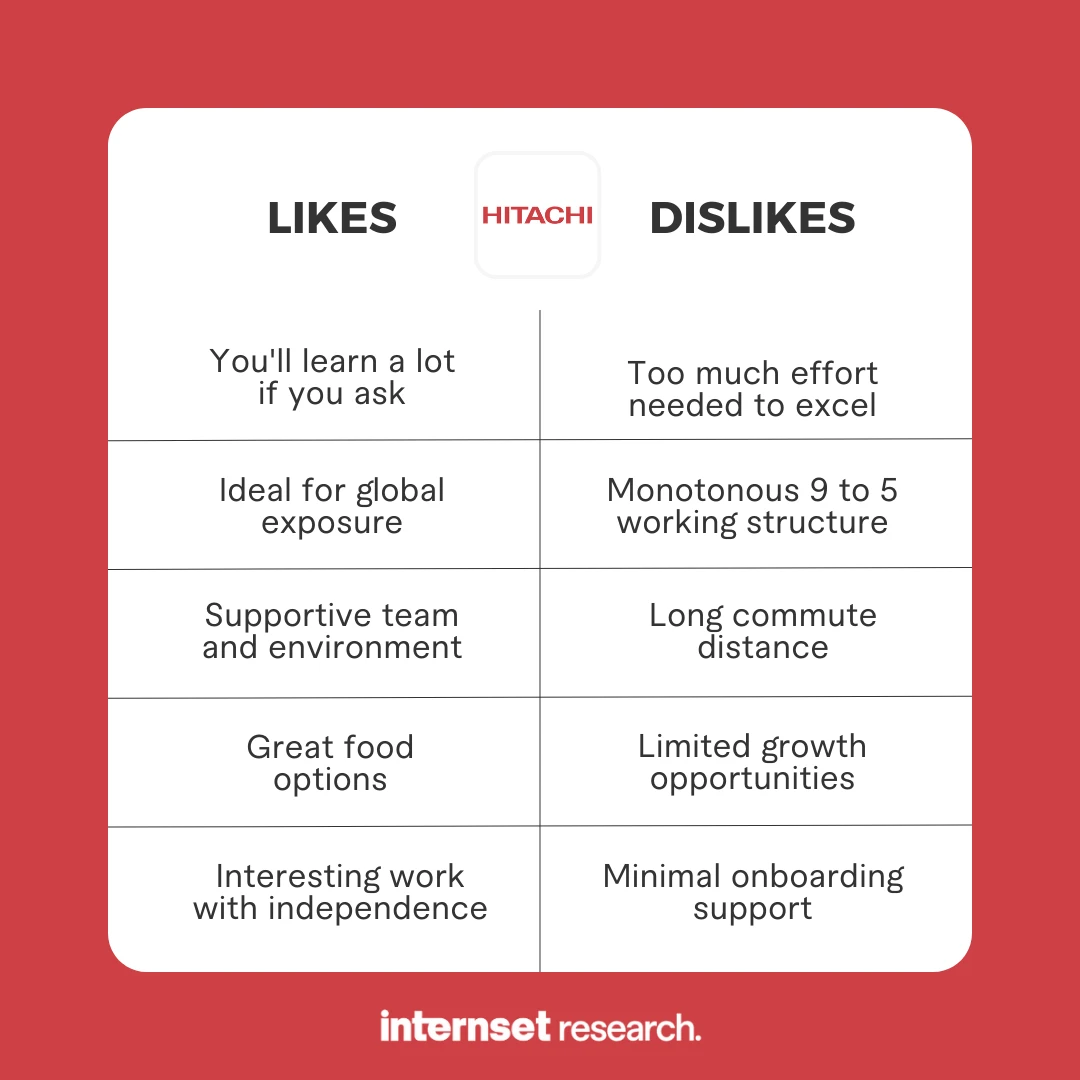


1 Popular internship programs at Hitachi
Hitachi’s internship programs are designed to nurture high-potential students eager to build careers in engineering, technology, digital systems, sustainability, and global business management. These programs are far from superficial. They place interns at the heart of real innovation and problem-solving. Interns work closely with experienced professionals, receive formal training, and are given meaningful responsibilities that contribute to Hitachi’s long-term vision of powering good for sustainable societies.
1.1 Global Power Plus Internship (Hitachi Energy)
This flexible program runs anywhere from 2 weeks to 12 months, depending on the location and business requirements. Interns get the chance to work in key departments like power systems, digital grid tech, software development, advanced manufacturing, supply chain, finance, sustainability, and marketing. With hands-on projects and dedicated mentorship, they’re encouraged to think creatively and push boundaries. The experience also includes onboarding sessions, technical workshops, and global intern meetups to help interns grow their expertise and build meaningful professional connections.
1.2 Summer Internship Program (Hitachi Energy)
This program typically spans 10 to 12 weeks and is geared toward undergraduate and graduate students pursuing degrees in engineering, business, and data science. Interns are placed in specialized roles such as Product Management, Electrical Engineering, and Software Testing. They work directly with Hitachi teams to support the launch of new products, evaluate user data, conduct feasibility studies, and optimize systems for operational efficiency.
1.3 Hitachi Rail Internship Program
Offered across global locations, this internship provides opportunities in railway technology and mobility infrastructure. Interns typically stay for 6 to 12 months and are embedded within multidisciplinary teams focusing on signalling, rail automation, cybersecurity, asset management, and mobility platforms. Interns take part in live projects that involve real-time monitoring systems, predictive maintenance software, and safety testing. With exposure to both office and field environments, the program offers a unique blend of technical challenge and infrastructure impact.
1.4 R&D and Artificial Intelligence Internship
This 6-month internship is a deep dive into research and innovation, tailored for postgraduates in computer science, AI, robotics, or data engineering. Interns work closely with senior researchers and tech leaders to build real solutions in areas like generative AI, natural language processing, machine learning, and industrial automation. It’s a great fit for anyone passionate about shaping next-gen technologies and looking to be part of a fast-moving, innovation-driven environment.
1.5 International Internship Program
Hitachi also offers targeted internship roles across countries including Germany, China, Japan, Canada, and the UAE. These internships range from short-term summer assignments to full-year cooperative education opportunities. Fields include applied physics, high voltage systems, simulation engineering, cybersecurity, HR analytics, ESG reporting, and process digitization. Interns are integrated into business units and are expected to participate in product development, stakeholder coordination, and project lifecycle management. Most programs include global team collaboration, offering exposure to Hitachi’s international operations and cultural diversity.
1.6 Procurement and Engineering Internship (Hitachi Construction)
Based in the Netherlands, this program offers six-month internships across functions like procurement, mechanical design, and industrial engineering. Interns collaborate with experienced professionals to streamline sourcing strategies, evaluate supplier performance, and support new product development. The program combines hands-on experience with formal training sessions, giving students the tools to navigate international business operations and modern construction technologies.
2 Popular roles for interns at Hitachi
1. IT Intern: Interns in this position contribute to developing enterprise software tools and digital solutions. They assist in designing, coding, testing, and deploying systems such as internal platforms, customer interfaces, automation scripts, and data dashboards..
2. Engineering Intern: Engineering interns assist with the design, simulation, prototyping, and field testing of Hitachi’s infrastructure and industrial solutions. They work on real-world applications such as energy grids, electric transportation, or smart factories. Interns gain experience with tools like CAD, participate in technical reviews, and help troubleshoot mechanical and electrical system challenges.
3. Product Management Intern: These interns sit at the center of business, engineering, and customer engagement. They help define product requirements, track project progress, coordinate cross-functional meetings, and assist in delivering milestones. Interns learn about business strategy, agile processes, and stakeholder communication while contributing to market research and planning.
4. R&D Intern: Interns in research and development roles explore cutting-edge ideas in artificial intelligence, data science, and automation. They help design and test algorithms, prepare training data, and evaluate model performance. Interns in AI-specific projects also assist in developing smart manufacturing tools, AI assistants, or analytics platforms used across industries.
5. Sales Support Intern: These internships expose students to the internal workings of Hitachi’s operational excellence. Interns may perform vendor assessments, help track logistics metrics, support recruitment processes, or build customer-facing documents. These roles give interns a comprehensive understanding of how global business units coordinate, optimize, and sustain operations.
6. Manufacturing Engineering Intern: This role bridges hands-on manufacturing with process improvement. Interns support lean manufacturing efforts, map production workflows, and assist in equipment optimization. They may help gather field data, contribute to cost-saving initiatives, or test systems under real production conditions.
Related articles:
2. In which industries can I do my final year internship as a mechanical engineering student?